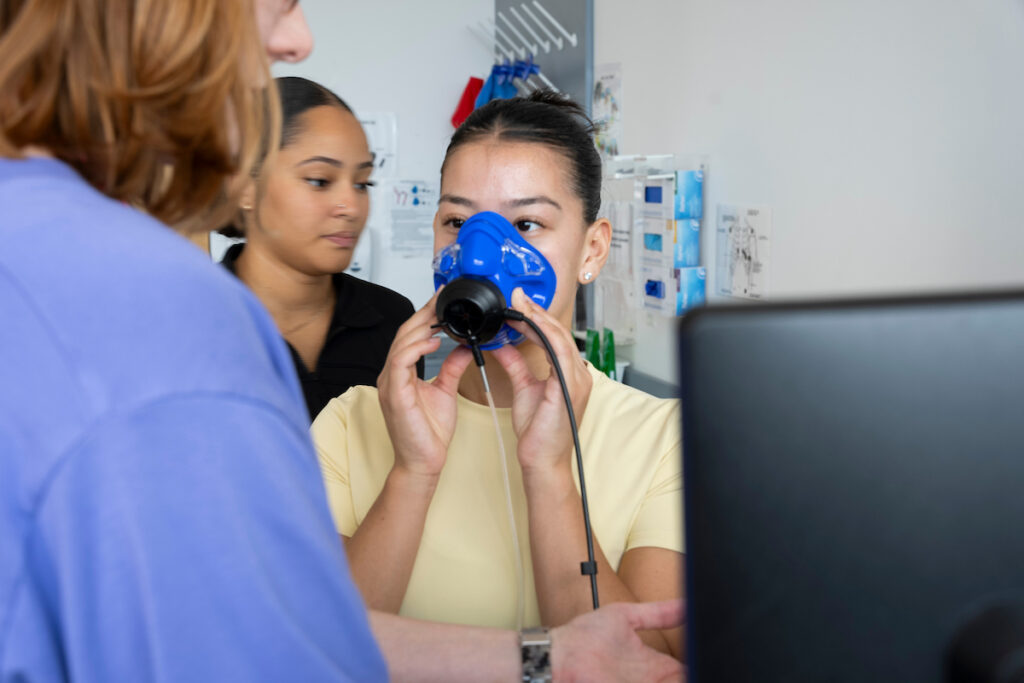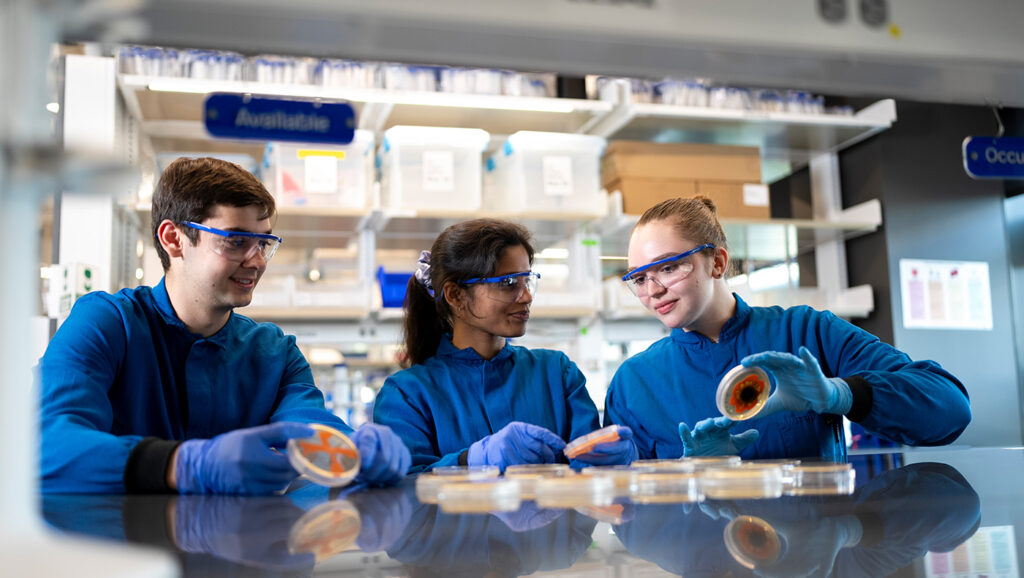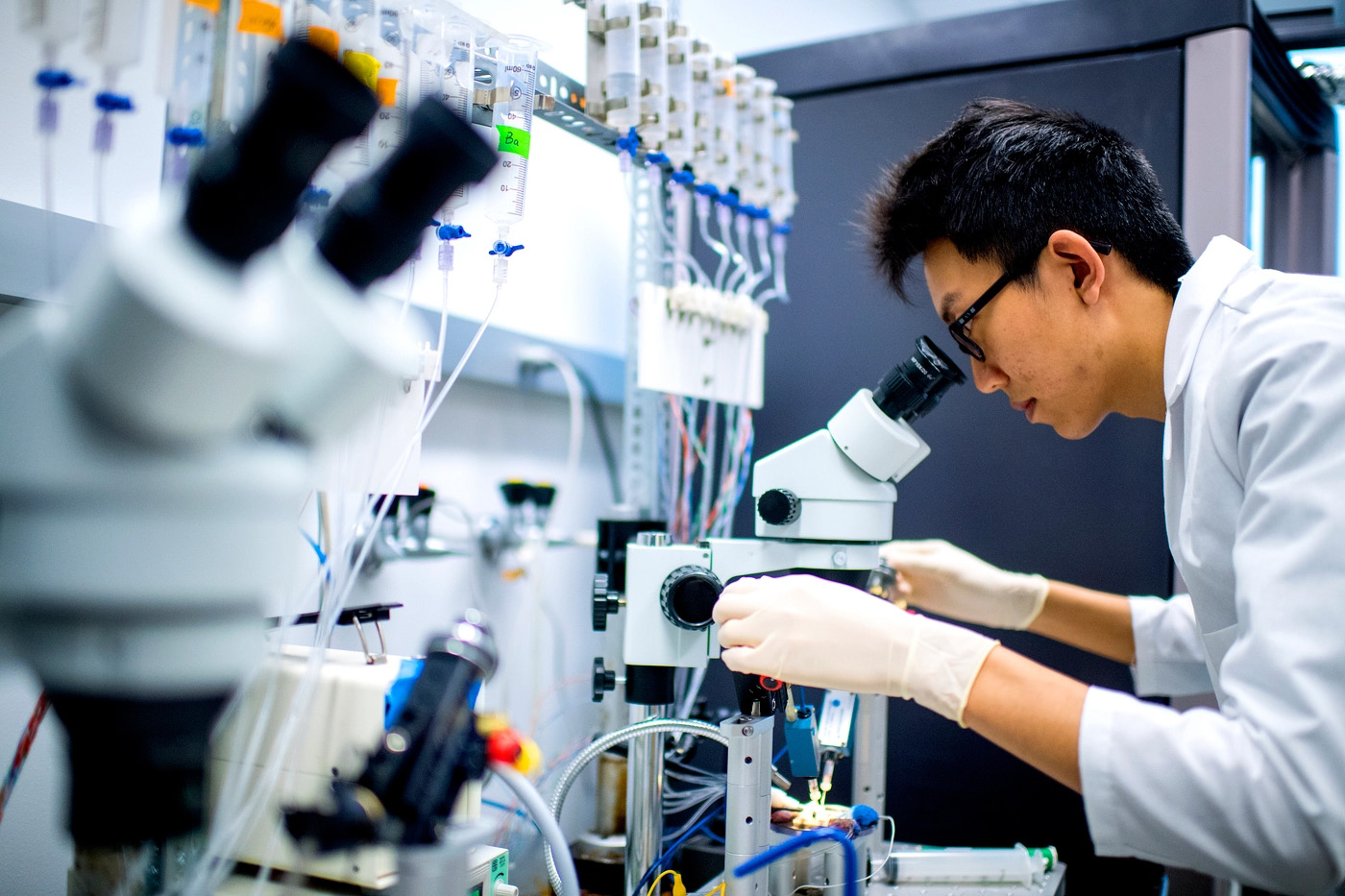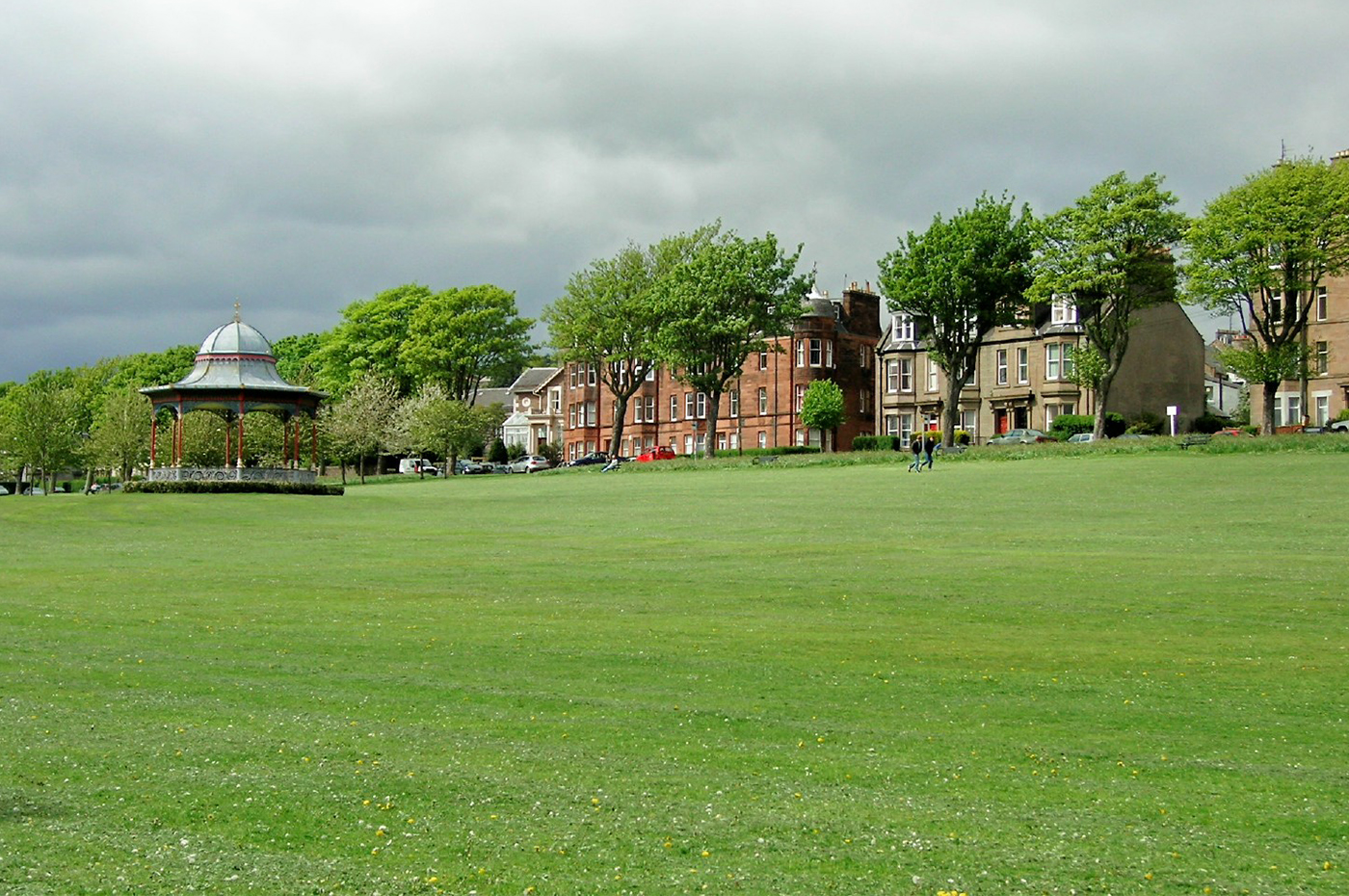Behavioral Neuroscience
The behavioral neuroscience program seeks to trace the connections and uncover the nature of how these mysterious transmissions transform from thoughts into actions.

Program Overview
The Behavioral Neuroscience (BNS) program combines multiple disciplines across the College of Science and beyond to understand how the behavior of humans and animals is controlled by physiological systems. The relationship between the brain’s activity and an organism’s behavior, both healthy and pathological, is examined at multiple levels of analysis, from how a nerve cell functions to how a facial expression conveys trust or fear.
Our students gain a strong foundation in biology, psychology, physical sciences, and mathematics and statistics, and can customize their education to meet their specific interests by selecting from an extensive set of advanced neuroscience electives which focus on diverse specializations and current topics in the field, including Brain, Behavior and Immunity, Multidisciplinary Approaches to Motor Control, and Neurobiology of Cognitive Decline.

Student Research Opportunities
Behavioral neuroscience research is interdisciplinary by nature, and there’s a broad array of laboratory research opportunities to explore here on campus, as well and nationally and internationally. Learn more about your research options for co-op, summer research, and more!
Behavioral Neuroscience Education
Undergraduate Majors
The behavioral neuroscience curriculum focuses on the biological bases underlying behavior under healthy and pathological states. The program combines the disciplines of biology and psychology with a strong background in basic physical sciences and mathematics to understand how the behavior of humans and animals is controlled by physiological systems.
Combined Majors
This combined major engages students in an interdisciplinary study across biology, psychology, Art + Design fundamentals, design core, and a strong foundation in the physiological brain mechanisms that give rise to behavioral functions with the practice of understanding humans, their surrounding contexts and systems, and designing alternative futures.
This combined major engages students in the interdisciplinary study across biology, psychology, and philosophy—providing rigorous training in both disciplines with a specific focus on understanding seminal questions concerning human nature and the mind.
This program underscores how research in neuroscience has become a computational field of study and is designed for students who are interested in applying mathematical and computational methodologies toward understanding human behavior, artificial intelligence, and the human-machine interface.
In this program, students have an opportunity to develop skills in large-scale data manipulation and storage, machine learning, data mining, and information visualization necessary to execute big brain-mapping initiatives including human neuroconnectivity maps.
In this combined major, students are introduced to the anatomical and functional specializations of the brain and neural mechanisms and have the opportunity to apply these concepts to the domains of speech, language, and hearing.
Undergraduate Minor
The behavioral neuroscience minor allows all students, including those majoring in biology and psychology, the opportunity to complement their major plans of study with an interdisciplinary minor in behavioral neuroscience.
Accelerated Programs
Our PlusOne programs allow students to pursue advanced degrees in a condensed period of time.
Bioinformatics, MS (PlusOne)
The MS in Bioinformatics program provides students with core knowledge in bioinformatics programming, integrating knowledge from the biological, computational, and mathematical disciplines.
Applied Behavioral Analysis, MS (PlusOne)
Cell and Gene Therapies, MS (PlusOne)
This innovative nonthesis MS degree program prepares students for the evolving field of cell and gene therapy medicine through a combination of expert-led interdisciplinary training in advanced therapies and in-demand skills development critical for career success.
Pre-Med and Pre-Health Track
Our PreMed and PreHealth Advising program offers personalized expertise to students pursuing health careers. This comprehensive program includes application guidance, workshops and presentations, course mapping and more.

Entrepreneurship
Our Science Connects to Innovation Program empowers undergraduate science students through education, resources, and networks to create entrepreneurial solutions—spanning cleaner energy, eco-friendly pesticides, potential anticancer compounds, sustainable foods, and high-tech assistive devices.
Experiential Learning
-

Cooperative Education
With Northeastern situated in the heart of Boston, there is no shortage of co-op opportunities in the fields of biotechnology, biomedical, and healthcare. From penguin tanks at the New England Aquarium to infectious disease research at Massachusetts General Hospital, students have the chance to explore careers paths and gain experiences they never thought possible.
-

Global Experiences
Northeastern’s Biology, Cell and Molecular Biology, Behavioral Neuroscience, and Biochemistry students have the opportunity to study at the University of Dundee, Scotland — the No. 1 rated Life Sciences university in the UK. This program also provides the opportunity to engage in hands-on research at one of the world’s emerging centers for biomedical research.

















